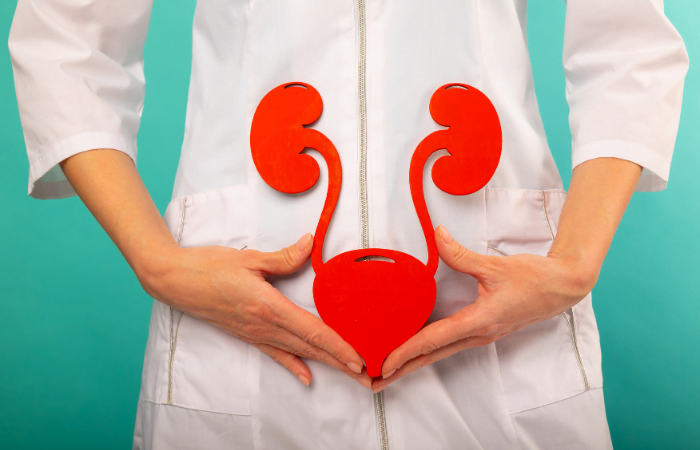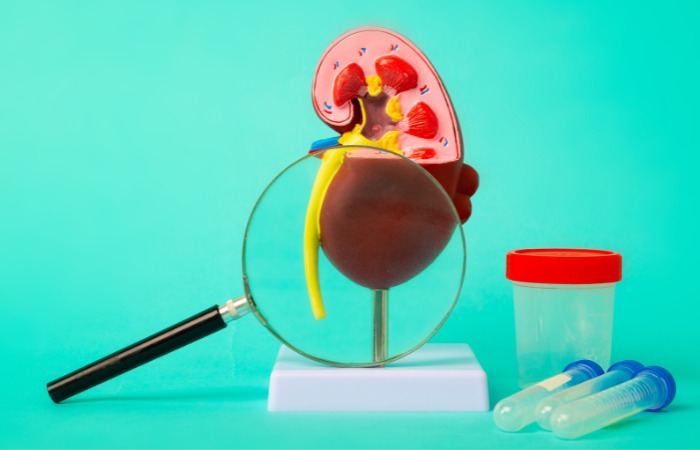
Kidney stones are small, hard mineral deposits that form in the kidneys and can cause significant discomfort as they pass through the urinary tract. Despite being a common medical condition, there’s a lot of misinformation surrounding kidney stones. Myths about their causes, treatment, and prevention can lead to unnecessary fear and confusion. At Diagnopein, we conduct various types of blood tests along in that we are situated in various cities Pune, Mumbai, Delhi, and Nagpur.
In this blog, we’ll debunk common myths about kidney stones and shed light on the facts to help you better understand this condition and how to manage it.
Fact: Staying hydrated is one of the most important ways to prevent kidney stones. When you drink insufficient water, your urine becomes concentrated, increasing the risk of stone-forming minerals crystallizing. Aim to drink at least 8-10 glasses of water daily or more if you live in a hot climate or are physically active.
Myth 2: Only Older Adults Get Kidney Stones
Fact: While kidney stones are more common in adults aged 30 to 60, they can affect people of all ages, including children. Lifestyle choices, genetics, and dietary habits play a significant role in determining your risk, regardless of age.
Myth 3: Kidney Stones Are Always Extremely Painful
Fact: The level of pain caused by kidney stones varies. Small stones may pass unnoticed, causing no pain at all. However, larger stones can block the urinary tract, leading to intense pain in the back, side, or abdomen. The severity of symptoms depends on the size and location of the stone.
Myth 4: Kidney Stones Form Due to High Calcium Intake
Fact: Calcium is often blamed for kidney stones, but the truth is more nuanced. While some kidney stones are made of calcium oxalate, they are more likely to form when calcium binds with oxalate in the kidneys, especially in people who don’t consume enough calcium from their diet. Adequate calcium intake can actually help prevent stones by binding with oxalate in the digestive system before it reaches the kidneys.
Myth 5: All Kidney Stones Require Surgery
Fact: Most kidney stones can be treated without surgery. Small stones often pass naturally through the urinary tract with increased hydration and pain management. For larger or obstructive stones, non-invasive treatments like shock wave lithotripsy or minimally invasive surgical procedures may be recommended. Surgery is generally reserved for very large stones or complications.
Myth 6: You Can’t Prevent Kidney Stones
Fact: Kidney stones are largely preventable through dietary and lifestyle changes. Staying hydrated, reducing salt and sugar intake, eating a balanced diet rich in fruits and vegetables, and moderating protein consumption can all lower your risk. Specific recommendations may vary based on the type of kidney stone you are prone to developing.

Myth 7: Drinking Cranberry Juice Prevents Kidney Stones Fact: Cranberry juice is often touted as a remedy for urinary tract infections, but its role in kidney stone prevention is questionable. It may even increase the risk of certain types of stones due to its oxalate content. Stick to water and consult your doctor about safe beverage options if you’re prone to kidney stones.
Myth 8: Kidney Stones Always Recur
Fact: While some individuals are more likely to experience recurring kidney stones, proper management and preventive strategies can significantly reduce the chances. Following medical advice, making dietary adjustments, and staying hydrated can help break the cycle of recurring stones.
Myth 9: Herbal Remedies Can Dissolve Kidney Stones
Fact: Many people turn to herbal remedies or alternative treatments in hopes of dissolving kidney stones. However, there is limited scientific evidence supporting the efficacy of these methods. Always consult a healthcare professional for evidence-based treatments and avoid self-medicating with unverified remedies.
Myth 10: Symptoms Always Indicate Kidney Stones
Fact: Symptoms like back pain, frequent urination, or blood in the urine are commonly associated with kidney stones but can also indicate other conditions such as urinary tract infections or kidney diseases. Proper diagnosis through imaging or lab tests is crucial to determine the cause and receive appropriate treatment.
Kidney stones are a manageable condition, but separating myths from facts is essential to making informed decisions about prevention and treatment. By maintaining a healthy diet, staying hydrated, and consulting a medical professional when needed, you can reduce your risk of kidney stones or manage them effectively.
At Diagnopein Diagnostic Center, we provide advanced diagnostic services to identify and evaluate kidney stones. Whether it’s through imaging tests like ultrasounds or CT scans, our experts are here to guide you with accurate diagnosis and treatment recommendations. Take the first step towards better kidney health today!